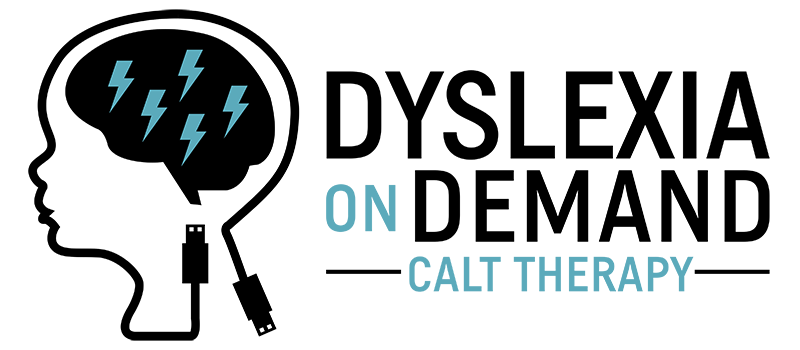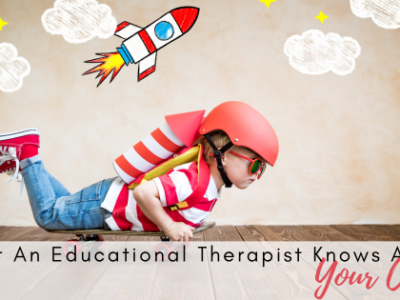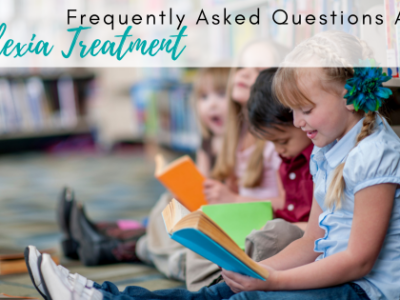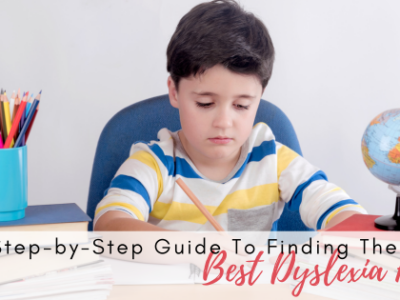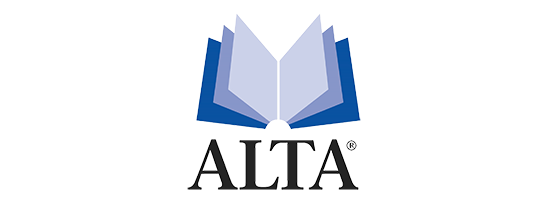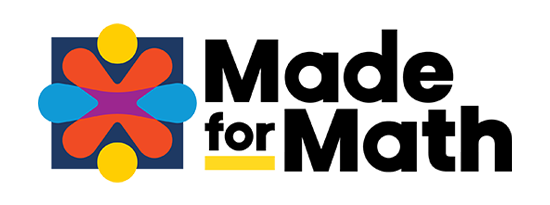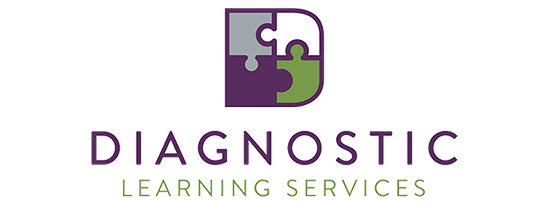
What An Educational Therapist Wishes You Knew About Dyslexia
So often in school settings, a child’s intelligence tends to get boiled down to a set of test scores and letter grades. The results of standardized tests can be discouraging to some students. However, math and visual/spatial ability—while important—do not measure a child’s intelligence holistically. It is so crucial that educators, parents, and students understand that there are multiple areas of intelligence that are all valuable skill sets. Children have different strengths, and dyslexia just happens to impair some of the academic skills that are so commonly valued as the most important. The theory of multiple intelligences that Harvard’s Dr. Howard Gardner developed in the 1980s includes linguistic, logical-mathematical, spatial, musical, kinesthetic, naturalistic, interpersonal, and intrapersonal intelligences.
When a student has a specific learning disability like dyslexia, grades and tests all seem to focus in on just one intelligence skill set; However it is so essential to expose children to a variety of instructional strategies that involve a variety of multiple intelligences. This helps to create opportunities for children to learn in ways that work the best for them. For students who have dyslexia, it can be helpful to take into account the idea of multiple intelligences. It is also a good idea to learn more about dyslexia and the best approaches to alleviating some of the struggles that are associated with it. Read on to learn more about what an educational therapist wishes you knew about dyslexia.
Success is possible for students with dyslexia. As parents and caregivers of children with dyslexia, it is so very important to believe that every child deserves a chance at success. It is also imperative to believe that this success is possible. The best dyslexia therapy programs can not only help with reading skills, they can help your child to become a more responsible and independent student. The educational therapists at Dyslexia on Demand use the latest research-based programs to help students improve in reading, writing, handwriting, spelling, study skills, and even math
Step-by-step is a great approach to learning with dyslexia. When you do a dyslexia program, it is ideal for a therapist to personally guide your child through a multisensory program that includes explicit, systematic instruction for reading and spelling. Programs that are Orton-Gillingham based are preferable, in that they’re trusted programs that enable students to achieve and maintain better word recognition, reading fluency, and comprehension by creating the neural pathways needed for the dyslexic brain to process language automatically.
Parents are great advocates for their students with dyslexia. Whether you’re communicating with an educational therapist, you child’s teacher, or your child, it is so good for all parties involved to take an active role in your child’s journey with dyslexia. In educational therapy, parents are truly partners with the educational therapists that work with their children. In school settings, it is also essential to get involved and to know what accommodations to request or to learn what services might be available for your child at his or her school. At Dyslexia on Demand, our philosophy is to include parents in the process of helping students. We provide step-by-step guidance on how to better support children with dyslexia at home. Both students and parents are given strategies to help students become academically successful.
Children can learn to be advocates too. While an educational therapist can address many of the necessary skills for the academic world, they can also inspire the development of other skills. Children can learn to be more responsible and independent as they advocate for themselves.
Look for the gold standard. When dyslexia therapy is being implemented, it is important to use a tried and true method. The Orton-Gillingham therapy programs are a comprehensive intervention for students with dyslexia. At Dyslexia on Demand, the Take Flight program includes a 2-year curriculum that was created by dyslexia experts and has great results.
Work with an expert. Overall, an educational therapy approach can cover so much more than tutoring alone. For students with dyslexia, working with a Certified Academic Language Therapist—also known as a CALT—can be most effective. CALTs are thoroughly educated and trained in their field. At Dyslexia on Demand, CALTs provide diagnostic, explicit, and systematic multisensory structured language interventions. This helps to build better accuracy, knowledge, and independence for students with dyslexia.
Multisensory learning is magical. Educational therapy like the programs offered through Dyslexia on Demand involve multiple senses to improve a student’s performance. The CALTs at Dyslexia on Demand incorporate visual, auditory, and motor processing when working with students on improving their language skills.
Are you ready to learn more about the possibilities of educational therapy for your student? Dyslexia on Demand is a truly convenient way to experience all of the benefits of dyslexia therapy. You can find an educational therapist at Dyslexia on Demand by calling 888-292-3906, or go online to learn more about working with CALTs as well as our dyslexia therapy programs.
